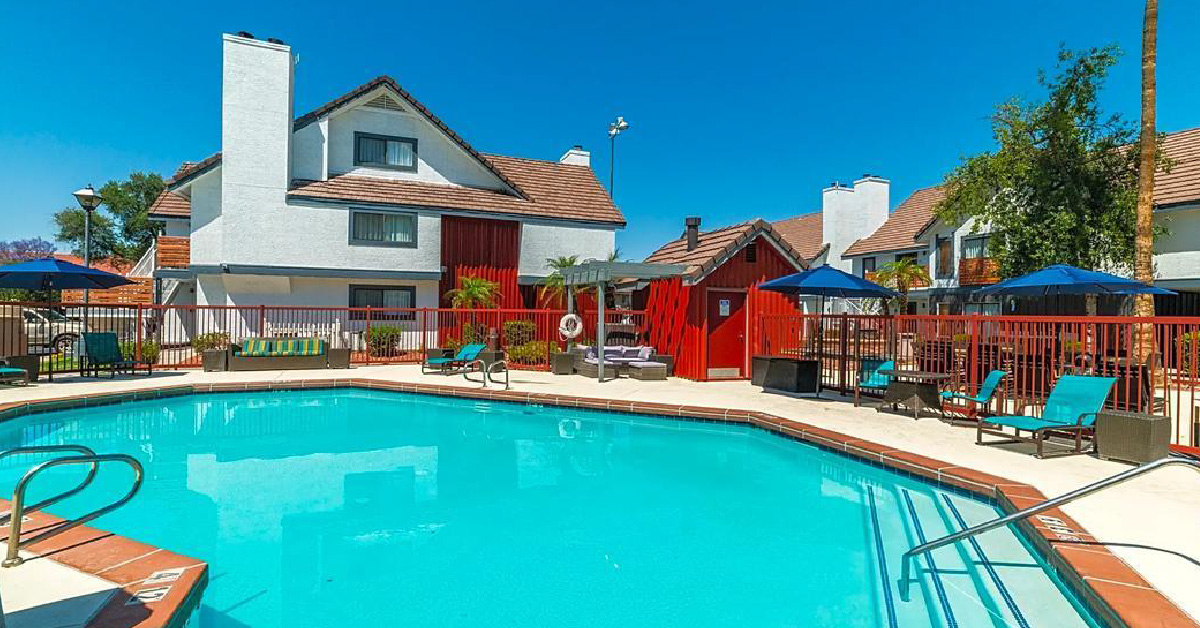
The All-Inclusive Advantage in Phoenix
All-inclusive Phoenix apartment rentals present a streamlined approach to managing living expenses by consolidating rent, various utilities, and sometimes furnishings into a single, convenient monthly payment. This model holds significant appeal in a dynamic metropolitan area like Phoenix, catering to a diverse demographic that includes students, traveling professionals, and individuals relocating for work. The core attraction lies in simplifying financial management and alleviating the administrative burden associated with setting up and maintaining multiple utility accounts.
Table of Contents
- The All-Inclusive Advantage in Phoenix
- Defining “All-Inclusive”: What Does It Truly Mean for Phoenix Apartment Rentals?
- The Appeal of One-Price Living: Benefits for Renters
- Understanding the Trade-offs: Potential Drawbacks
- What’s Included: A Detailed Breakdown
- A. Utilities
- B. Furnishings
- C. Amenities
- Navigating the Phoenix Apartment Rentals: One-Price All-Inclusive
- A. Key Platforms and Providers
- B. Unit Types and Price Ranges in Phoenix
- Lease Terms and Application Process
- A. Lease Terms
- B. Application Process
- Essential Questions to Ask Before Signing Your Lease
- Making an Informed Decision
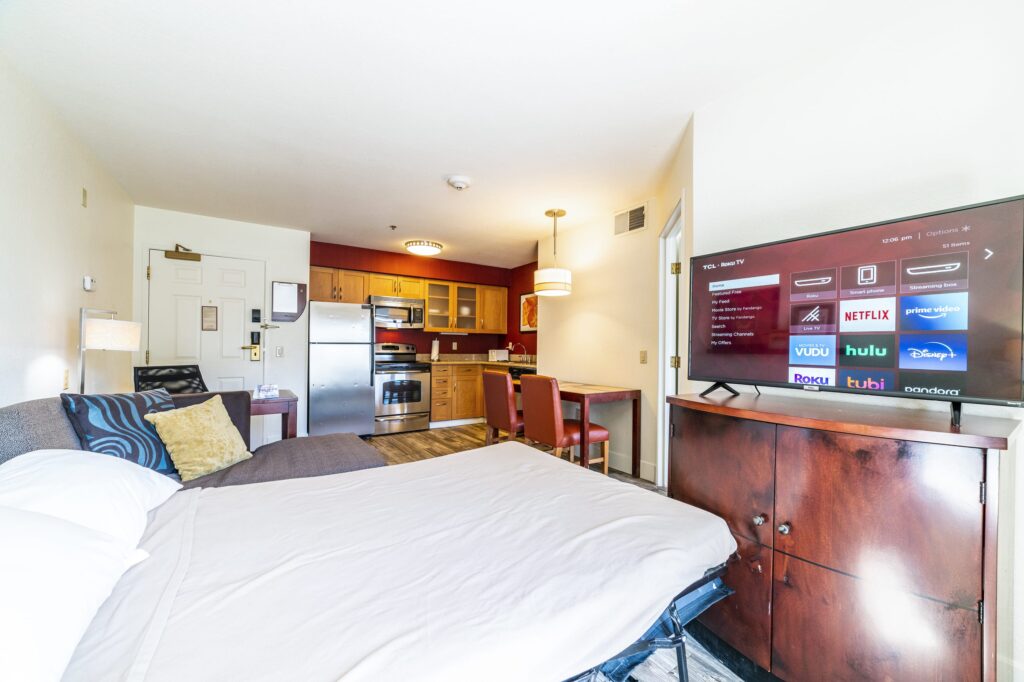
The demand for all-inclusive rentals in Phoenix is notably driven by specific market segments. The consistent emphasis on “convenience” and “simplified budgeting” across various sources, alongside explicit mentions of “students” and “traveling nurses” , indicates that the all-inclusive model is a strategic adaptation by the Phoenix apartment rentals market. This adaptation addresses the distinct needs of transient populations or individuals who prioritize ease of management over granular control of expenses. This suggests that the all-inclusive option is a tailored solution for these groups, rather than a universal preference across the entire rental market.
While the promise of “one-price” living is compelling, it is important to recognize that this convenience often comes at a premium. Reports indicate that all-inclusive rent is generally higher than the base rent for comparable properties where utilities are billed separately. Landlords typically factor in average utility costs, along with an additional charge for the administrative overhead and the added convenience provided. This implies that the “one-price” aspect functions as a premium service. Prospective renters should therefore approach all-inclusive options with the understanding that they are paying for predictability and convenience, which inherently translates to a higher base cost.
Careful comparison with unbundled options is essential to ensure the value aligns with individual financial priorities.
Defining “All-Inclusive”: What Does It Truly Mean for Phoenix Apartment Rentals?
At its most fundamental, an “all-inclusive” apartment simplifies a renter’s financial obligations by combining the monthly rent with several common living expenses into one payment. This structure aims to eliminate the need for renters to manage separate bills for services like water, electricity, and trash, and often removes the initial setup hassle associated with new utility accounts. The convenience offered by this single payment is a significant draw, simplifying budgeting and reducing the mental load for tenants.
Despite the common understanding, the precise components of an “all-inclusive” package can differ substantially from one rental community to another. While water, sewer, and trash removal are almost universally included , the inclusion of other crucial utilities like electricity, high-speed internet, and cable television is not guaranteed and varies by property. This variability underscores the importance of direct inquiry by prospective renters to ascertain the specific inclusions before committing to a lease.
A critical nuance to understand is the prevalence of “utility caps,” particularly on electricity usage. This means that while electricity might be included, it is only covered up to a certain monetary limit, often ranging from $30 to $50 per roommate per month. Any consumption exceeding this cap will result in additional charges, which can erode the predictability benefit that is a core appeal of an all-inclusive package. This transforms a seemingly fixed cost into a variable one, undermining the core budgeting benefit for high-usage tenants. Renters must therefore inquire about specific cap amounts and consider their typical usage patterns, especially given Phoenix’s hot climate and the significant need for air conditioning.
Beyond utilities, some all-inclusive rentals, especially those catering to corporate or temporary housing, extend their packages to include comprehensive furnishings, kitchenware, linens, and even initial supplies like cleaning products and laundry pods. These offerings aim to provide a truly “turnkey” living experience, where residents can move in with just personal items.
The widespread use of the term “all-inclusive” can be misleading if not thoroughly investigated. The consistent emphasis that inclusions “vary depending on the property” and that “each community’s utility package will vary” indicates that the term functions more as a marketing descriptor than a standardized offering. This necessitates rigorous due diligence, making active inquiry about every specific inclusion, any applicable caps, and potential additional fees an essential step before committing to a lease.
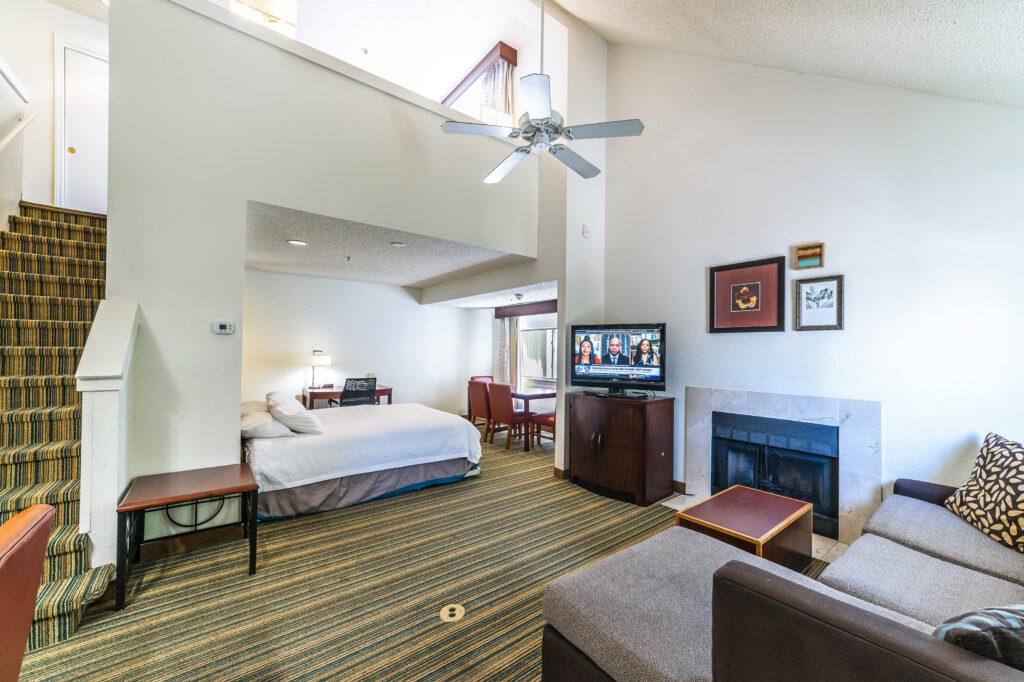
The Appeal of One-Price Living: Benefits for Renters
One of the most significant advantages of an all-inclusive apartment is the financial predictability it offers. Renters know precisely how much they will pay each month for their core living expenses, eliminating the anxiety of fluctuating utility bills, especially during Phoenix’s hot summers when cooling costs can significantly increase. This stability is particularly beneficial for students, first-time renters, or anyone operating on a fixed budget.
The sheer convenience of a single monthly payment is a primary driver for choosing all-inclusive options. This model saves considerable time and effort by removing the need to set up individual accounts with various utility providers. Furthermore, renters avoid the initial activation fees or security deposits often required when establishing new utility services, thereby reducing upfront moving costs. This significantly streamlines the entire move-in process and reduces the risk of missed payments leading to service interruptions.
The consistent emphasis on “convenience,” “fewer worries,” and “saves time” suggests that the primary value proposition for many renters extends beyond mere cost savings; the reduction in administrative burden and the associated peace of mind are significant decision factors.
In many student-oriented or larger apartment communities, all-inclusive leases are structured “by-the-bed”. This means each individual tenant signs a separate lease and is solely responsible for their portion of the rent and included utilities. This arrangement greatly simplifies shared living, as it eliminates the common disputes and complexities associated with splitting utility bills among roommates, ensuring each person’s financial independence within the shared living space.
Fully furnished, all-inclusive apartments are an exceptionally practical solution for individuals needing temporary housing, such as students, business travelers, or medical professionals like travel nurses. Providers like Nexxus and AvenueWest Arizona specialize in corporate housing, offering “turn-key” solutions that are move-in ready, complete with furniture, utilities, and often even kitchenware and basic supplies. Their flexible month-to-month lease options make transitions seamless and stress-free, allowing tenants to focus on their primary purpose in Phoenix rather than logistical housing challenges.
This specialized segment within the all-inclusive market offers a higher level of service, including 24/7 support and concierge services, catering to a premium market willing to pay for enhanced comfort and service.
Understanding the Trade-offs: Potential Drawbacks
Despite the allure of a single bill, all-inclusive rent is generally higher than the base rent for comparable unfurnished properties where utilities are paid separately. Landlords typically factor in an average utility cost, plus a premium for the added convenience and administrative overhead. This means that renters who are particularly energy-conscious or have lower utility consumption might end up paying more than they would if they managed their utilities independently.
As previously noted, many all-inclusive packages, especially for electricity, come with a “cap”. If a tenant’s usage exceeds this predetermined limit, they will incur additional charges, directly impacting the “predictable monthly cost” benefit. For instance, AvenueWest Arizona explicitly states that a “utility allowance for gas/electricity combined is included,” but “overages will be billed to the tenant”. This can lead to unexpected expenses, particularly during peak seasons like Phoenix’s summer, challenging the core promise of fixed costs.
This creates a potential disconnect between the renter’s expectation of a single, unchanging bill and the reality of potential overage charges.

With utilities bundled, the landlord or property management typically selects the service providers. This removes the renter’s ability to choose a preferred internet provider, a specific electricity company, or to shop around for better rates. Furthermore, because the direct cost of utilities is not immediately felt, there can be less incentive for renters to conserve energy. This lack of motivation to reduce consumption could, in the long run, contribute to higher average utility costs for the property, which may eventually translate into increased rent prices for all tenants.
The suitability of an all-inclusive apartment heavily depends on the renter’s lifestyle and priorities; for those who are highly energy-efficient or prefer control over their providers, the bundled cost might not be economically advantageous.
While furnished apartments offer immense convenience, they inherently limit a renter’s ability to personalize their living space. Tenants are often restricted to the provided decor and furniture, which may not align with their personal aesthetic or comfort preferences. The options for selecting specific furniture items are typically non-existent, requiring renters to adapt to what is already present. The quality of furniture can also vary significantly, potentially leading to uncomfortable or outdated items.
Renters in furnished units are generally responsible for the proper upkeep of the provided furniture and may be liable for any damages beyond normal wear and tear. This can be a concern for those unfamiliar with furniture care or repair. Additionally, despite the “all-inclusive” label, other fees might apply, such as non-refundable departure cleaning fees or charges for specific services or amenities that were not explicitly desired by the tenant.
What’s Included: A Detailed Breakdown
A. Utilities
In all-inclusive apartment offerings, water, sewer, and trash removal are almost universally bundled into the monthly rent. Properties often also include basic services like pest control and routine maintenance.
Electricity is a common inclusion, though nearly always accompanied by a “utility cap” to manage excessive usage. These caps typically range from $30-$50 per roommate per month, with any consumption exceeding this cap resulting in additional charges. High-speed internet and cable television are also frequently part of the package.
It is crucial to note a significant regional nuance within Phoenix. For luxury apartments in Downtown Phoenix, while garbage, internet, and cable may be included as a flat fee, core utilities such as water, electricity, gas, and sewage are often not covered in the rental rate and are charged by a separate, third-party company like Conservice. This represents a notable deviation from the general definition of “all-inclusive” and requires renters to be particularly vigilant in downtown areas.
Furthermore, some properties may use ambiguous language; for instance, Northern Chateau Apartments advertises “All utilities included” but then specifies “COX High-Speed Wireless Internet: Available for an additional $30 per month”. This distinction between “internet ready” (infrastructure exists) and “internet included” (service is covered by rent) can lead to unexpected costs. Due to this variability, it is paramount for prospective tenants to directly inquire about the specific utilities covered by each community before signing a lease.
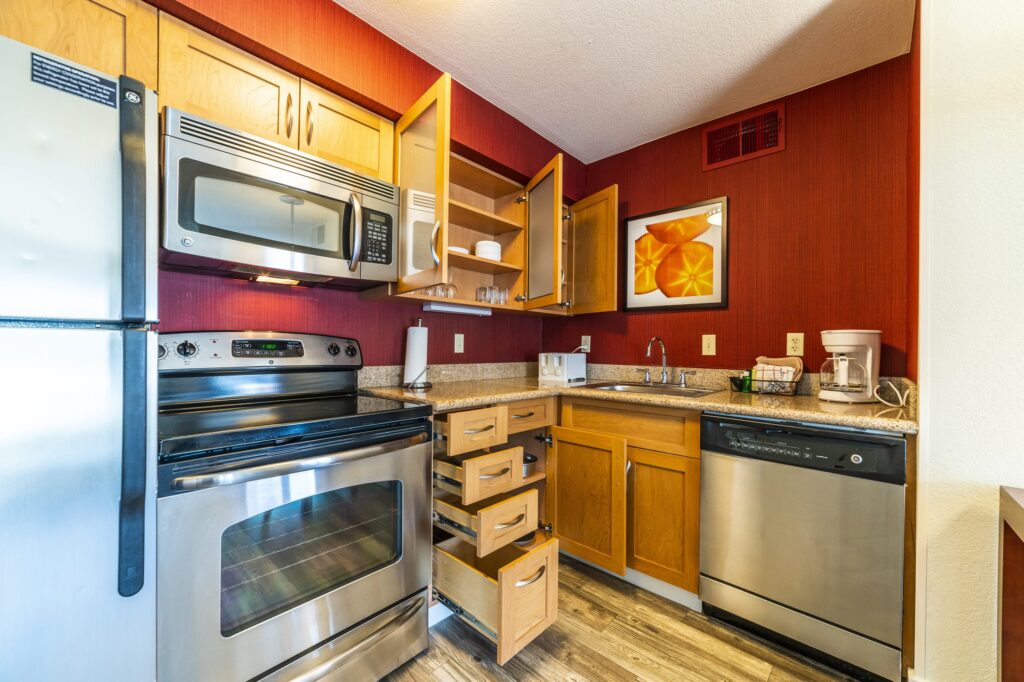
Typical Utility Inclusions and Considerations in Phoenix Apartment Rentals
| Utility Type | Common Inclusion Status | Typical Limitations/Caps | Key Questions to Ask |
| Water | Usually Included | None | Is water usage capped? |
| Sewer | Usually Included | None | Is sewage included with water? |
| Trash | Usually Included | None | Are there specific trash/recycling fees? |
| Electricity | Often Included with Cap | $30-$50/roommate, or general allowance; overages billed 1 | What is the exact cap amount? How are overages calculated and billed? |
| Gas | Rarely Included; Often Separate in Downtown Phoenix | N/A | Is gas included, or do I pay a third party? |
| Internet | Often Included | May be a “technology fee” ($50-$150/month) 15; sometimes “ready” but not “included” 16 | Is internet truly included, or is it an extra fee? What speed is provided? Who is the provider? |
| Cable TV | Often Included | May be a “technology fee” ($50-$150/month) 15 | What channels/packages are included? |
| Pest Control | Often Included | None | How often is pest control performed? |
| Heat/Cooling | May be included with electricity cap | Linked to electricity cap | Is heating/cooling covered by the electricity cap? |
B. Furnishings
For Phoenix Apartment Rentals marketed as furnished, a typical package includes essential items for key living areas. This often comprises a living room set (e.g., sofa, coffee table, end tables), a dining table with seating (commonly 4 chairs), and bedroom furniture (e.g., a full-size bed, nightstand, dresser, and a desk with a chair). Some properties may even include a television in the common area.
Corporate housing providers, such as Nexxus and AvenueWest Arizona, offer a more comprehensive “turnkey” experience designed for immediate occupancy. These units are not just furnished but often include cookware, utensils, bed linens, towels, small kitchen appliances (e.g., coffee makers), and even starter supplies like cleaning products and laundry pods. This level of furnishing aims to make the apartment feel like a home away from home from day one.
While furnished apartments offer immense convenience and save upfront costs, the quality and style of furniture can differ significantly. This can lead to potentially uncomfortable, outdated, or poor condition furniture being delivered to tenants. The convenience of a furnished unit comes with a potential compromise on personal aesthetic preference and comfort levels. Renters should always ask the leasing team for a detailed inventory of what is included and, if possible, request a tour of a model unit to see the actual furniture provided. This proactive step is crucial to ensure the furnishings meet expectations and to avoid surprises upon move-in.
C. Amenities
Beyond the apartment unit itself, many all-inclusive communities offer a range of shared amenities that enhance the living experience. These commonly include access to pools, fitness centers (some operating 24 hours), resident clubhouses, and co-working spaces. Security measures, such as fob systems, electronic key locks, video monitoring, and on-site security or patrol officers, are also typical, especially in larger complexes. Access to these amenities is typically included in the base monthly rental rate.
Many modern all-inclusive units provide in-unit conveniences like a washer and dryer, a fully equipped kitchen (with appliances), and Wi-Fi connectivity.
Corporate housing providers elevate the amenity offering with concierge-level services. AvenueWest Arizona and Nexxus, for example, aim to provide “all the comforts of home + 5-star hotel service”. This can include services like towel service, lawn care, and even city tours. They also emphasize 24/7 personal support to address tenant needs promptly.
It is important for renters to critically evaluate whether they will genuinely utilize all the included amenities. If a renter does not regularly use the gym, pool, or concierge services, they are effectively paying for features they do not need or use. This contributes to the higher overall cost of the all-inclusive package, as the cost of these amenities is embedded in the higher rent. Renters should assess the true value proposition of the amenities against the increased rent to ensure they are not overpaying for unused perks.
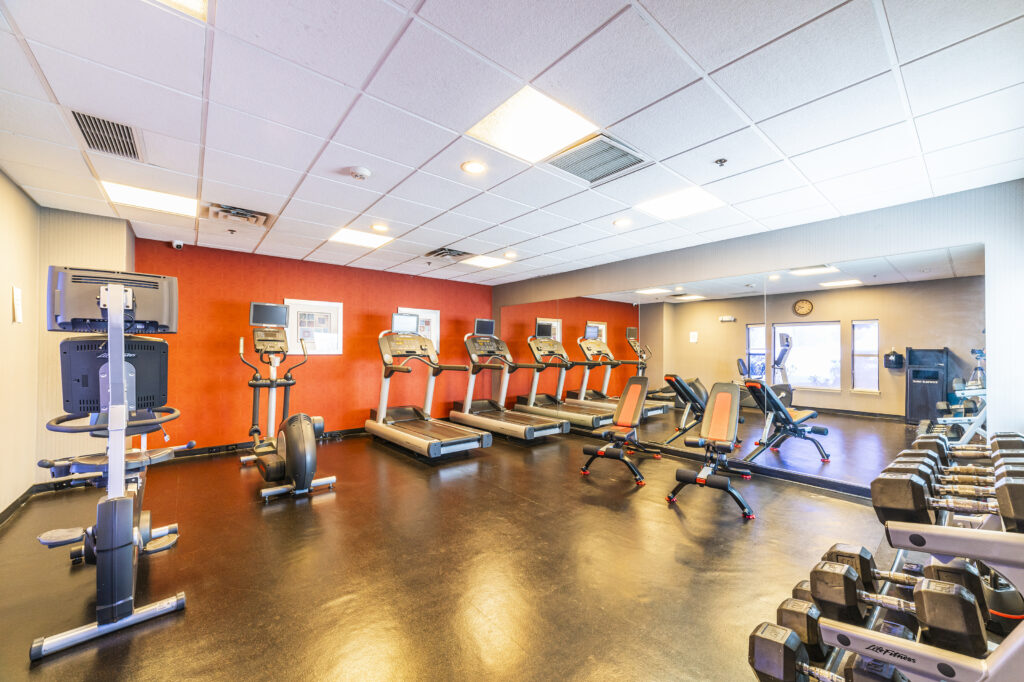
Navigating the Phoenix Apartment Rentals: One-Price All-Inclusive
A. Key Platforms and Providers
Prospective renters seeking all-inclusive apartments in Phoenix have several avenues for their search. Major rental websites such as Zillow , RentCafe , Apartments.com , and ApartmentHomeLiving serve as primary search platforms. These sites typically allow users to filter listings for “utilities included” or “furnished with utilities included,” streamlining the initial search process.
Beyond general platforms, specialized corporate housing providers cater specifically to individuals needing short-term, fully equipped, and serviced accommodations. Nexxus, for instance, focuses on providing fully furnished, all-inclusive corporate housing. Their emphasis is on delivering a “turn-key” stay, complete with 24/7 support and a single monthly payment, with a commitment to no hidden fees.This type of offering is particularly popular among traveling professionals, such as nurses.
Similarly, AvenueWest Arizona offers professionally managed, fully furnished apartments and corporate housing with flexible month-to-month lease options. Their packages typically include in-unit washer/dryer, fully equipped kitchens, Wi-Fi, and all utilities, though with specific allowances for gas/electricity where overages are billed to the tenant. AvenueWest also distinguishes itself by providing concierge-level services, aiming to replicate a 5-star hotel experience.
Local Phoenix examples also exist, such as Northern Chateau Apartments, which explicitly advertises furnished studio and one-bedroom apartments with all utilities included.
The market for “all-inclusive” Phoenix Apartment Rentals exhibits a spectrum of providers and service levels. General rental platforms list diverse properties, while specialized corporate housing offers a significantly higher level of service and more comprehensive inclusions, such as starter supplies and concierge services. This indicates that the “all-inclusive” experience is not uniform; the level of inclusion and service often correlates directly with the type of provider. Renters should match their specific needs—whether it’s a short-term, high-service requirement or a longer-term need for basic convenience—with the appropriate provider type.
Furthermore, while Phoenix is the target, all-inclusive options are not evenly distributed throughout the entire metropolitan area. Snippets list specific neighborhoods within Phoenix (e.g., Encanto, Arcadia, Midtown, South Mountain, Deer Valley ) and adjacent communities (e.g., Laveen, Tempe, Scottsdale, Glendale, Peoria ). This suggests that renters may need to broaden their search beyond just “Phoenix proper” if their specific needs, such as unit type or budget, are not met in their initial target area.
B. Unit Types and Price Ranges in Phoenix
The price range for apartments with utilities included in Phoenix Apartment Rentals is quite broad, typically spanning from $800 to $3,500 per month. Zillow listings provide a wider spectrum, showing examples from studios starting at $995 to 3-bedroom units reaching $4,350+.
For fully furnished corporate housing in Phoenix, the average cost is approximately $1,500 per month, with some properties starting from $1,495 or $1,581.
Specific examples of unit types and their corresponding price ranges include:
- Studios: These can range from $800 to over $1,703. Northern Chateau Apartments, for instance, offers furnished studios.
- 1-Bedroom Units: Prices typically range from $949 to $2,163+.
- 2-Bedroom Units: These are available from $1,099 to $3,545+
- 3-Bedroom+ Units: Prices can range from $2,200 to $4,350+. Notably, corporate housing providers like Nexxus list 3–5-bedroom houses from $2,130 to $2,550.
Corporate housing providers like AvenueWest Arizona offer a diverse range of furnished property types, including lofts, condos, townhomes, single-family houses, and traditional apartments. Nexxus also provides a variety of housing options, including apartments, condos, studios, and home rentals.
The significant price variability observed across all-inclusive apartments in Phoenix indicates that the term “all-inclusive” does not correspond to a single price point. Instead, it represents a spectrum of offerings. The actual cost will be influenced by several factors, including the unit type, the specific location within Phoenix (e.g., downtown versus suburban areas), the extent of furnishings (basic versus “turnkey”), and the comprehensiveness of the “all-inclusive” package (e.g., basic utilities versus full corporate housing with concierge services).
Renters should clearly define their budget and priorities, such as luxury, basic convenience, or short-term needs, to effectively navigate this vast price range and identify true value.
A key factor contributing to higher prices in certain segments is the premium placed on flexibility. While standard lease terms in Arizona are typically 12 months , corporate housing providers like Nexxus and AvenueWest explicitly offer “month-to-month flexibility” and short-term options. This flexibility is a significant selling point for their target audience of traveling professionals and those on temporary assignments.
The ability to lease month-to-month or for short durations adds considerable value in the rental market, and this convenience typically contributes to the higher price point of corporate housing compared to standard all-inclusive apartments that might require longer lease commitments. Renters prioritizing this flexibility should be prepared to pay a premium for it.
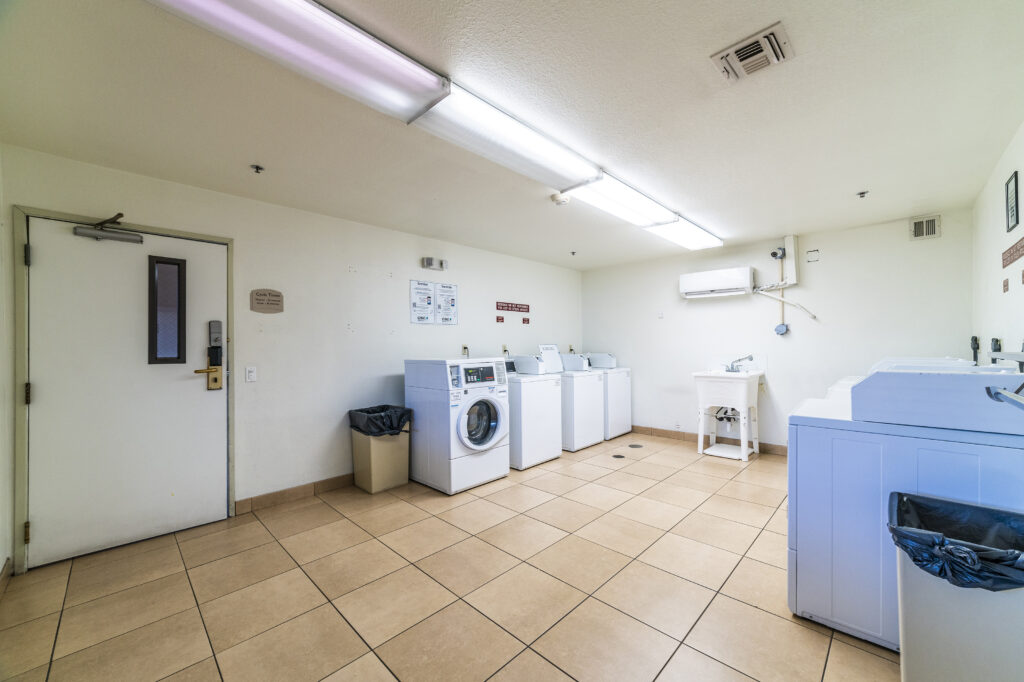
Lease Terms and Application Process
A. Lease Terms
For traditional, long-term rentals in Arizona, the standard lease term is typically 12 months. It is a legal requirement that all lease agreements be in writing and structured to be valid and enforceable under Arizona state laws. This legal framework is paramount for protecting both tenant and landlord rights, underscoring that even for convenient all-inclusive options, the lease is a binding legal document that must comply with specific local regulations.
A significant advantage of many all-inclusive apartments, particularly those offered by corporate housing providers, is the availability of flexible lease terms. Nexxus, for instance, offers housing for durations ranging from one month to six months. Similarly, AvenueWest Arizona provides “month-to-month flexibility” with a minimum stay of 30 days. This flexibility is a key selling point, especially for individuals with transient needs, such as students or corporate transferees.
The type of lease term offered often indicates the primary target renter; if a renter requires short-term flexibility, focusing on corporate housing or student-oriented communities, which are designed to accommodate such populations, can significantly streamline their search.
A common feature in student-centered or larger all-inclusive communities is the individual lease structure. This means each roommate signs a separate lease agreement and is only responsible for their specific portion of the rent, simplifying financial arrangements and reducing potential disputes in shared living situations. For flexible leases, a 30-day notice to vacate is typically required.
For standard 12-month leases, the agreement will stipulate what happens at the end of the term, such as automatic conversion to a month-to-month agreement or the requirement for a new lease. Even if not immediately planning to move, it is always prudent for prospective renters to inquire about the landlord’s policies and any potential penalties for early lease termination, as life circumstances can change unexpectedly.
B. Application Process
The application process for all-inclusive apartments in Phoenix generally requires each adult (18 years or older) who will reside in the apartment to fill out a separate application and sign the lease agreement.
Applicants are typically required to provide comprehensive documentation to verify their identity, income, and rental history. This includes photo identification (e.g., a state or government-issued ID) and proof of income, such as two most recent pay stubs, W2s, last two years’ tax returns, DES benefit letters, official offer letters, or recent bank statements for self-employed individuals. Monthly gross income is often required to be at least 2.5 to 3 times the net effective monthly rental rate. A complete and verifiable rental history is also necessary.
Prospective renters should be prepared for various upfront fees that extend beyond the monthly “one-price” payment. These can include a non-refundable application fee, typically ranging from $50 to $75 per adult applicant , and administrative or holding fees, which can also be non-refundable, with examples such as $200. A significant expense is the security deposit, often equivalent to one to three months’ rent.11 In Arizona, state law caps the security deposit at no more than 1.5 months’ rent.
Some properties may also require an earnest money deposit (e.g., $500 or half the monthly rent, whichever is less) , which is usually returned if the application is denied or applied towards the first month’s rent/security deposit if approved. Corporate housing providers may charge a one-time, non-refundable departure cleaning fee. If pets are allowed, additional fees may apply, including monthly pet rent and/or one-time non-refundable pet fees. The accumulation of these upfront costs can be substantial, often amounting to several hundred or even a few thousand dollars before move-in, a critical financial consideration that renters must budget for.
Landlords conduct a thorough screening process to assess applicant suitability. This typically includes credit report checks , searches of public records for any past evictions , verification of employment , contacting previous landlords for rental references , criminal background checks , and a review of payment history for collection accounts and judgments.
This comprehensive vetting process highlights that securing an all-inclusive apartment, especially in a competitive market like Phoenix, requires more than just the ability to pay the monthly rent; a clean and stable financial and rental record is crucial for approval. While some applications can be processed within hours if all required documentation is complete, others may take longer due to the need for thorough verifications from previous landlords or employers.
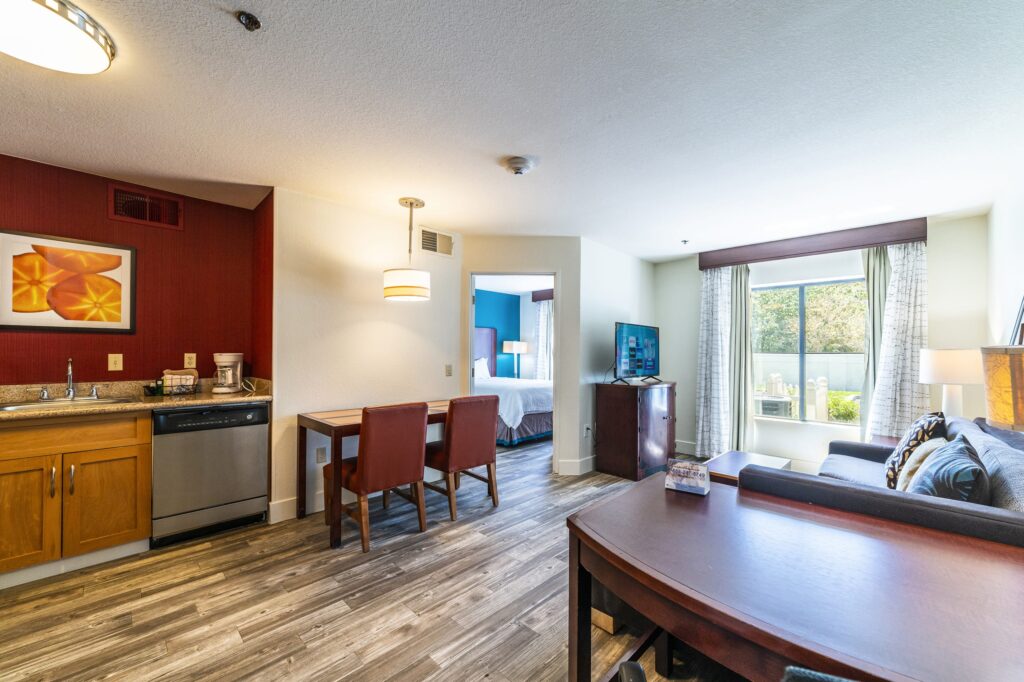
Essential Questions to Ask Before Signing Your Lease
To ensure a clear understanding and avoid unexpected costs or disappointments, prospective renters should ask the following critical questions:
- Utilities:
- What exactly is included in the “all-inclusive” package (e.g., water, sewer, trash, electricity, gas, internet, cable, pest control, heat/cooling)? It is advisable to request a detailed, itemized list in writing.1
- Are there any utility caps, particularly for electricity? If so, what are the specific limits (e.g., dollar amount, kWh), and what are the charges for exceeding these overages?.
- Who are the specific utility providers (e.g., internet company, electric company), and is there any choice or flexibility in selecting different providers or service tiers?.
- How are utility overages tracked, communicated, and billed to the tenant?
- Furnishings:
- What specific furniture items are included in each room (e.g., living room, dining area, each bedroom)? Request an inventory list.
- Are “turnkey” items such as cookware, dishes, linens, towels, and small appliances (e.g., microwave, coffee maker) also provided?
- What is the policy regarding damage or wear-and-tear to the provided furnished items? Is the tenant responsible for repairs or replacement costs beyond normal use?
- Is the tenant permitted to remove, store, or rearrange any of the provided furniture to suit personal preferences?
- Fees and Policies:
- What are all the upfront fees required before move-in (e.g., application fee, administrative fee, security deposit, earnest money)? Are any of these fees refundable under specific conditions?
- Are there any recurring fees beyond the monthly all-inclusive payment (e.g., monthly pet rent, parking fees, technology fees, trash fees)?
- What is the landlord’s late fee policy for rent payments?.
- What is the policy for early lease termination and are there any associated penalties or fees?
- Is there a one-time, non-refundable departure cleaning fee at the end of the lease?
- Lease Specifics:
- What is the standard lease term offered (e.g., 12 months), and are flexible (e.g., month-to-month, 3-month) options available?
- If sharing with roommates, is it an individual by-the-bed lease (where each person is responsible for their portion) or a joint lease (where all tenants are collectively responsible)?
- What is the required notice period for vacating the apartment at the end of the lease term?
- What happens automatically at the end of the initial lease term (e.g., does it convert to month-to-month, or is a new lease required)?
- Community & Property:
- What specific community amenities are included (e.g., pool, fitness center, clubhouse), and are there any additional fees for their use or reservation?
- What are the security measures in place within the community and building (e.g., controlled access, video monitoring, on-site security)?
- Is there on-site management or 24/7 support available for maintenance or emergencies?
- What is the complete pet policy, including any breed restrictions, weight limits, or specific rules for pet owners?
The extensive nature of these questions, coupled with the repeated warnings about variations in inclusions and potential caps, highlights that failing to ask specific, detailed questions can lead to significant unexpected costs, frustrations, or dissatisfactions after moving in. The “one-price” marketing can inadvertently create a false sense of security. This checklist serves as a critical risk mitigation tool, emphasizing the essential due diligence required to protect the renter from financial surprises and to ensure that the “all-inclusive” package genuinely aligns with their expectations and needs. It underscores the “buyer beware” principle that applies even to seemingly straightforward rental agreements.
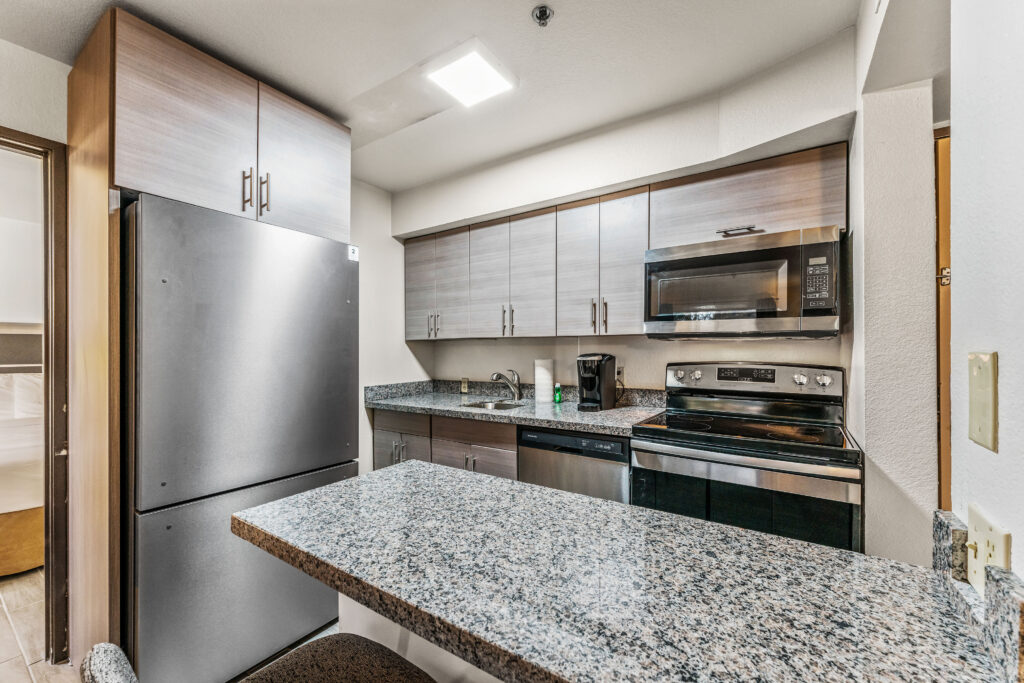
Making an Informed Decision
Navigating the Phoenix apartment rental market for all-inclusive options requires a comprehensive understanding of what the term truly entails and a diligent approach to property selection. While the “one-price” model offers undeniable convenience and budgeting predictability, it is essential to recognize that this often comes with a premium in the base rent.
A critical aspect of due diligence involves verifying the specific utility inclusions, as these can vary significantly between properties. Prospective renters must be particularly aware of potential usage caps, especially for electricity, and understand how overage fees are calculated and billed. The nuances of furnishings, from basic provisions to comprehensive “turnkey” setups, also warrant careful assessment to ensure they meet personal quality and customization needs. Furthermore, evaluating whether the included community amenities and specialized services justify the higher cost for an individual’s specific lifestyle and usage patterns is crucial.
Renters should also be aware of regional variations within Phoenix apartment rentals, particularly in downtown areas, where some core utilities like water, electricity, and gas might be billed separately by third parties, contradicting the general “all-inclusive” definition. Beyond the monthly rent, it is vital to factor in all upfront fees, including application, administrative, and security deposits, as these can represent a significant initial outlay.
Finally, matching the lease term flexibility—whether a standard 12-month agreement or a more flexible month-to-month option—to one’s personal needs and duration of stay is paramount.
Ultimately, the decision to opt for an all-inclusive apartment in Phoenix depends on individual priorities. The convenience and predictability offered by these rentals are highly valuable for specific demographics, such as transient professionals and students, who prioritize ease of living over granular control of expenses. However, for those who are highly energy-conscious or prefer complete control over their living environment and utility providers, the bundled cost might not always be the most economically advantageous choice.
The comprehensive information presented in this guide, coupled with a proactive approach to asking detailed questions and meticulously reviewing lease agreements, will empower prospective renters to make an informed decision that aligns with their unique circumstances and ensures a seamless transition into their new Phoenix home.
Sources
swamprentals.comwww.swamprentals.com Opens in a new window
407apartments.comAll Inclusive Apartments in Orlando, FL – 407apartments Opens in a new window
renttally.comAll-inclusive Apartments in Tallahassee, FL – RentTally Opens in a new window
apartments.comApartments for Rent in Tempe AZ with Utilities Included Opens in a new window
zillow.comApartments For Rent with Utilities Included in Phoenix AZ | Zillow Opens in a new window
phoenix.avenuewest.comAvenueWest Arizona | Corporate Housing Phoenix, AZ Opens in a new window
apartmentlist.com36 Questions to Ask When Renting an Apartment Opens in a new window
rentcafe.comApartments with Utilities Included in Phoenix (AZ) – RentCafe Opens in a new window
all-inclusiverentals.comFAQ | All Inclusive Rentals LLC Opens in a new window
leaseaz.comRENTAL APPLICATION – Service Star Realty Opens in a new window
tripalink.comPros and Cons of Renting a Fully Furnished Apartment – Tripalink Opens in a new window
angi.comWhat Does Utilities Included Mean When Renting? – Angie’s List Opens in a new window
rentnexxus.comCorporate Housing in Phoenix | Fully Furnished | All Inclusive Opens in a new window
apartments.comFurnished Apartments for Rent in Phoenix AZ Opens in a new window
zillow.comFurnished Apartments For Rent in Phoenix AZ | Zillow Opens in a new window
apartments.comThe Nexus at Hurley Ranch Houses for Rent – Tolleson, AZ | Apartments.com Opens in a new window
hellolanding.com45 Furnished Apartments in Phoenix, AZ – Landing Opens in a new window
apartments.comFurnished Corporate Housing in Phoenix AZ – Apartments.com Opens in a new window
rentcafe.comShort Term Rentals in Phoenix (AZ) | RentCafe Opens in a new window




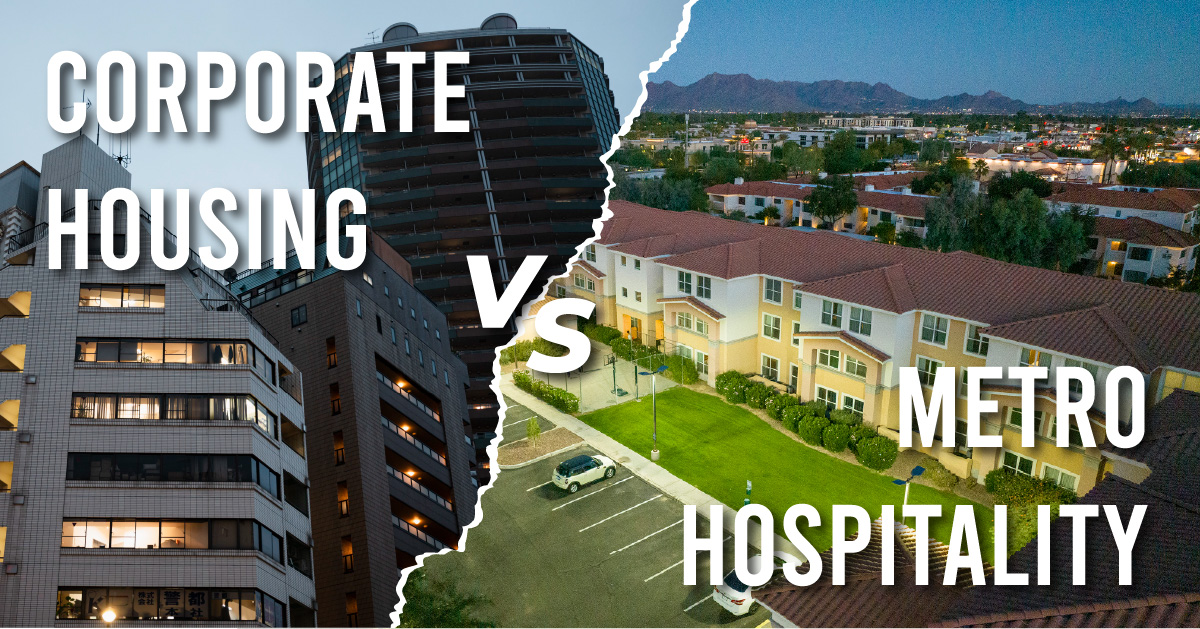
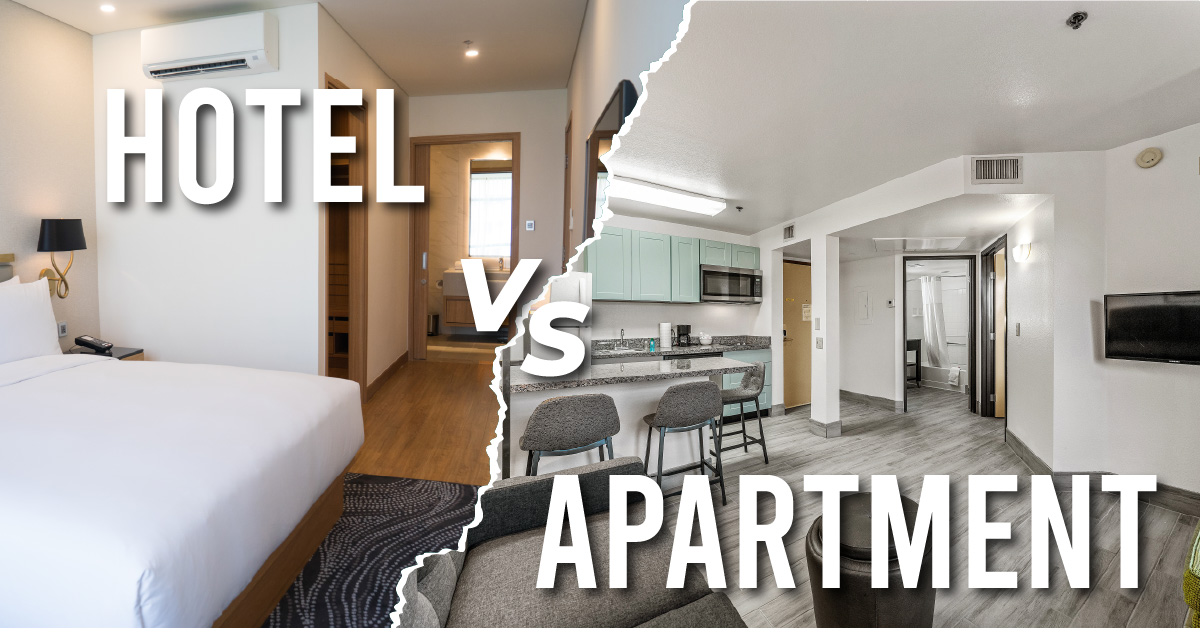








No Comments